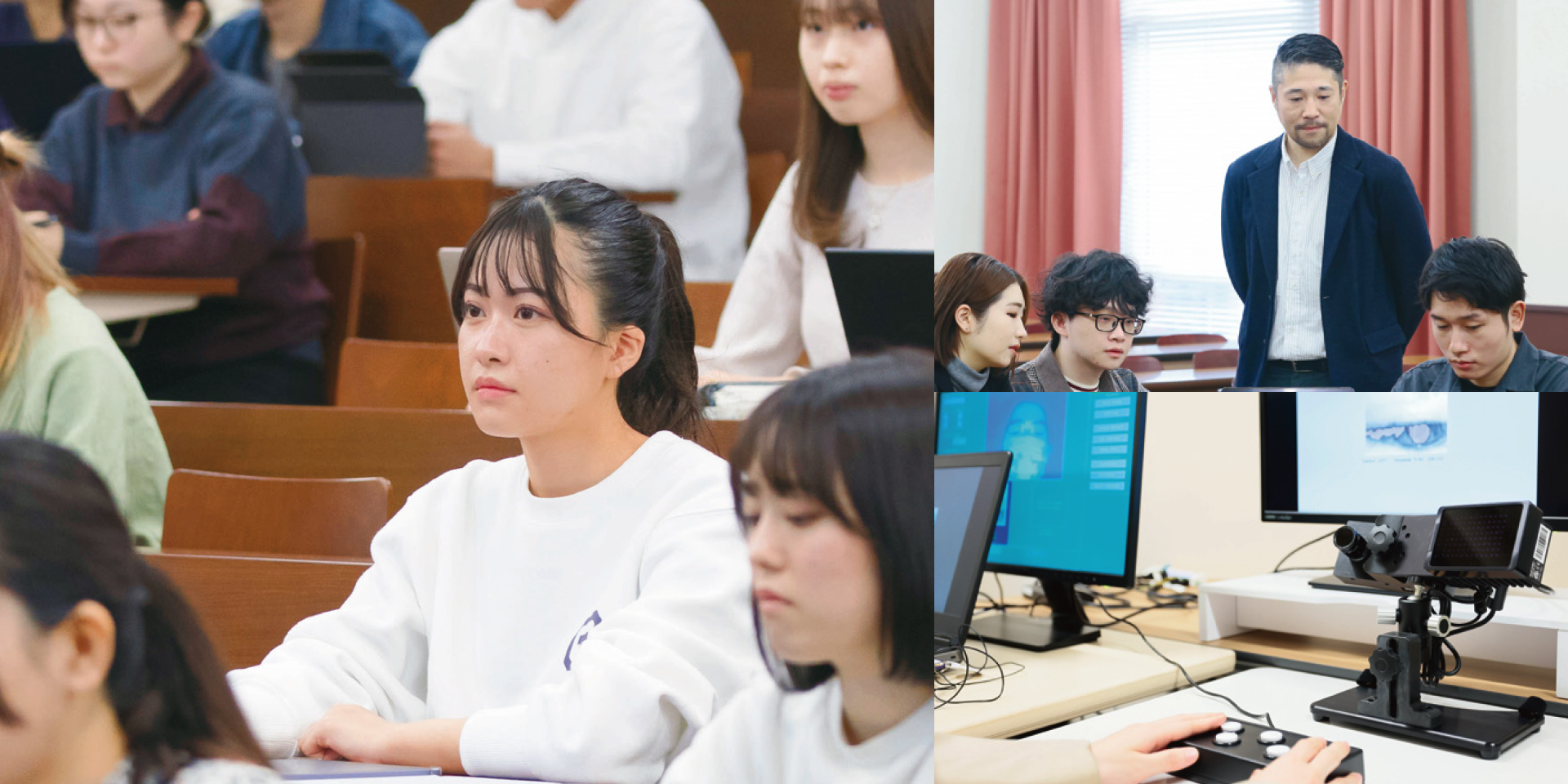Department of Psychology
Department of Psychology
Department of Education and Child Development

Developing human resources with analytical and practical skills rooted in psychology
Psychology that emphasizes the relationships between people and society is one of the distinctive features of the Department of Psychology. Students acquire a scientific understanding of the mind’s mechanisms and the ability to respond to any type of person or situation within today’s increasingly complex society – in other words, they acquire analytical and practical skills rooted in psychology. The Department welcomes students with an interest in the scientific exploration of the mind and a desire to contribute to society by applying the psychological knowledge and research methods they have learned.
Department of Psychology
Key Features of the Department of Psychology
Program Structure
Topics
Admission Policy
Key Features of the Department of Psychology
Point 01
A large faculty with diverse areas of expertise
With fifteen full-time faculty members, we are one of the leading departments of psychology in Japan, and one of the few that provide a good balance of learning between the basic and clinical fields of psychology. Many of our students change their fields of interest and post-graduation career plans as they study various areas of psychology, and we offer courses that can accommodate such changes.
Point 02
A substantial curriculum that fully supports Certified Public Psychologist licensure
After completing all designated subjects and graduating from the University, students can qualify to take the National Examination for Certified Public Psychologists either by completing all the designated subjects in the Graduate School, or by amassing the required period of work experience at an institution designated by the Ministry of Health, Labor and Welfare or the Ministry of Education, Culture, Sports, Science and Technology.
Point 03
Meticulous support for our students
The Psychology Department has various systems in place to support our students in addition to the Student Counseling Center, Health Support Center, and Student Support Center operated by Meiji Gakuin University. The entire Department supports our students through mechanisms such as our class advisor system, career counseling courses for job hunters, and the Shirokane Psychology Association, a place for interactions between our current students, graduates, alumni, and faculty.
Point 04
Diverse employment opportunities and high graduate school enrollment rates
The most common sectors in which Department of Psychology graduates found employment were information and communications, the mass media, and consulting, followed by the service, wholesale, and retail sectors. Our graduates thus play an active role in a wide range of industries and occupations. Another characteristic of our Department is that many students go on to graduate school to obtain Certified Public Psychologist or Certified Clinical Psychologist licensure.
Program Structure
In their first year, students take classes to learn the basics of psychology and acquire logical thinking skills in small-group seminars. In their second year, they increase the depth of their knowledge via foundational and advanced classes, and learn the basics of how to scientifically study the mind. Ten practical classes are available in their third and fourth years. Students choose an area of focus from amongst five specialized fields. In seminars, students choose a theme and conduct research for their graduation thesis. This enables them to develop logical thinking and problem-solving skills.
Topics
Developmental and Clinical Psychology
Students acquire the fundamental knowledge required to understand children’s psychological, emotional, and social development. They learn methodologies and specialized knowledge of psychology, and develop the ability to comprehensively understand and explain mental development. Through their studies, they acquire the readiness to tackle various issues in contemporary society.
Practicum in Cognitive Psychology
Humans use eye movements to acquire visual information from the outside world. Gaze measurements have thus been used since around the nineteenth century in attempts to elucidate cognitive processes involved in the processing of visual information. In this course, students gain an understanding of the characteristics and limitations of multiple indicators through experiments and surveys of gaze measurements, giving them first-hand experience of the potential of gaze measurement research and eye movement measurements.
